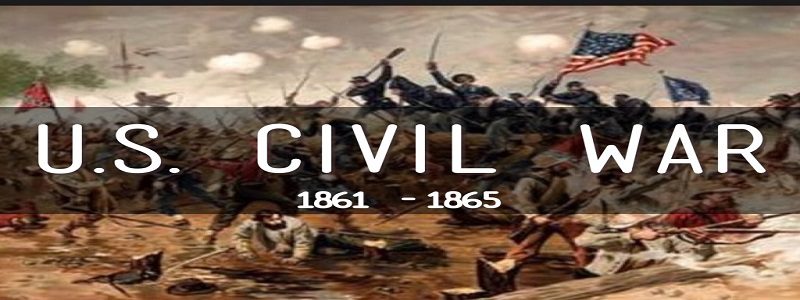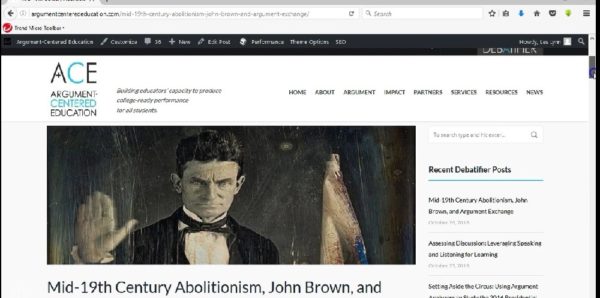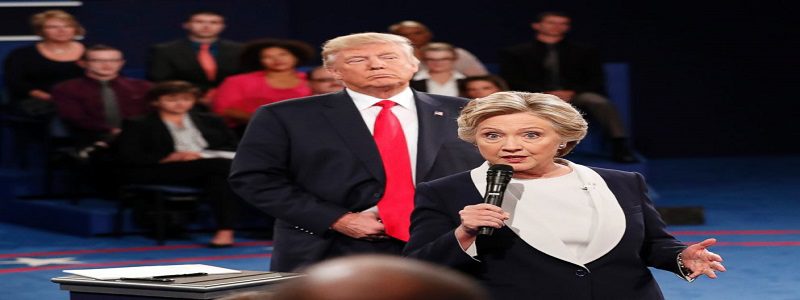The U.S. Civil War and Argument-Templated Final Assessments
We’re working with a partner school right now that wants to do argument-based final assessments in their Civil War unit in their History/Humanities curriculum. The students are very capable but they’re in a relatively early stage in their study and use of academic argumentation. So we put together two argument-templated final assessments, which are now being given to students in various ways: some students are taking both assessments, some students are taking one, and some the other.
Assessing Discussion: Leveraging Speaking and Listening for Learning
Education standards are increasingly acknowledging the importance of speaking and listening in the classroom as a mechanism for learning. The Common Core puts forward an unprecedentedly detailed set of standards for students’ classroom discussions. These two examples are representative:
CCSS.ELA-Literacy.SL.8.1.c
Pose questions that connect the ideas of several speakers and respond to others’ questions and comments with relevant evidence, observations, and ideas.CCSS.ELA-Literacy.SL.8.1.d
Acknowledge new information expressed by others, and, when warranted, qualify or justify their own views in light of the evidence presented.
Setting Aside the Circus: Using Argument Analyzers to Study the 2016 Presidential Debates
“It’s a total mess,” said Brent Wathke, sitting in his humanities classroom at DeLong Middle School, in Eau Claire, Wisconsin. “Honestly, I can’t wait until it’s over.” Mr. Wathke is one of countless teachers across the country who have anguished over the dark and sometimes shocking tone of the presidential campaign. Like many, he has searched for ways to talk about it in class. Some teachers are planning mock debates before the election; others, like Mr. Wathke, fear that the format could invite students to spout insulting rhetoric.
— New York Times, October 19, 2016, p.A10
We feel your pain. The presidential debates this election cycle have often been a lot like the broader campaign itself: ugly, non-substantive, insult-centric, rancorous, and inappropriate for minors. Despite our work with schools on debating and argumentation in the classroom, we get why many educators have written off the presidential debates as a productive field for civics teaching and critical thinking practice and development.
‘Game Change,’ Presidential Politics, and the Use of Guided Reflection Questioning
As part of our work with schools to take an argument-centered approach to the election season and the civics and history implications it has we are working with a partner high school on a unit on the definitive account of the 2008 campaign cycle and the election of Barack Obama, Game Change, by John Heilemann and Mark Halperin.
The primary issue that our argument-centered unit revolves around is:
What is the most important factor in being elected President in modern American politics?







